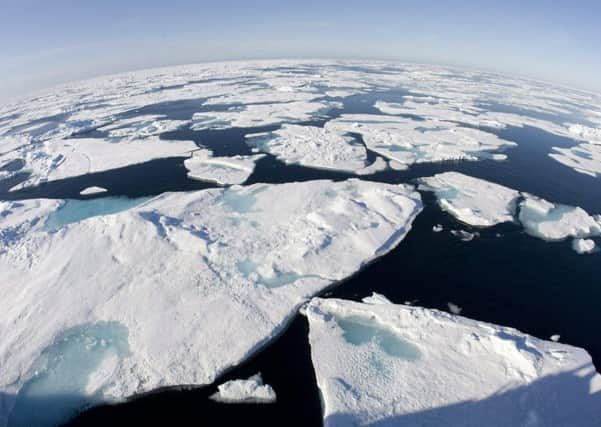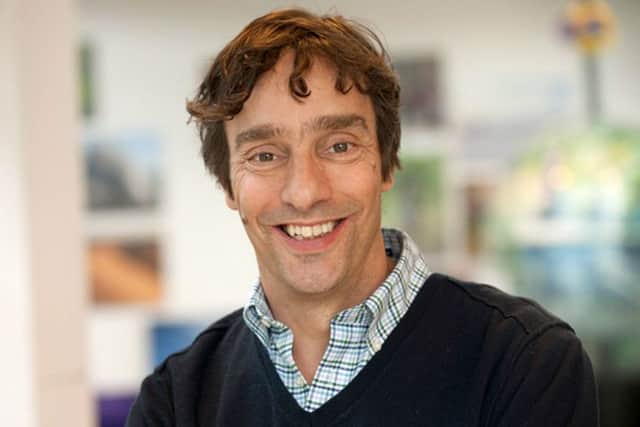Climate change and the hottest June on record


Last week saw temperatures in Yorkshire soar to more than 30C with some pockets of the country even warmer than Barcelona and Lisbon.
For many of us it was a welcome glimpse of something we see all too rarely - a proper summer. There was, of course, the usual supermarket stampede as people stocked up on burgers and sausages for the ‘barbie’, while ice cream vendors rubbed their hands in glee as families flocked to the coast or their local lido - like the 2,500 people who made a beeline for the one in Ilkley.
Advertisement
Hide AdAdvertisement
Hide AdTypically, the mini heatwave was over almost as quickly as it had begun. But elsewhere in the world heat levels continue to inch forward with last month the hottest June ever - the 14th consecutive month of record-breaking temperatures.


Last year was actually the hottest on record, beating 2014 which had previously held the title. It’s a trend many experts believe is a sign that we’re now approaching dangerous levels of climate change.
Earlier this month a report from Government advisers in the UK warned that urgent action was needed to deal with the already significant risks of flooding and heatwaves caused by the changing climate. It said that water shortages for homes, agriculture and industry and effects on domestic and international food production are among the risks from global warming that urgently need to be tackled.
While there are still some naysayers most climate scientists agree that recent, high impact changes to global climate patterns are man made. Piers Forster, Director of the Priestley International Centre for Climate, based at the University of Leeds, says temperatures around the world have risen steadily since the 1970s due to the emission of greenhouse gases.
Advertisement
Hide AdAdvertisement
Hide Ad“Everything else being equal, we expect temperature records to be regularly broken - so this is not at all surprising. All bar one of the ten hottest years since records began occurred after 2000.”


In December, the Paris climate conference set the ambitious goal of finding ways to limit global warming to 1.5 C. But as Prof Forster points out, even this increase over a sustained period would have a profound impact.
“Long-term sea-level rise that will permanently destroy low lying nations kicks in above 1.5 C, so this target was chosen for good reason,” he says.
“Even the most optimistic scenarios envision decades where we overshoot this target and hopefully return towards 1.5C at the end of the century. We are already seeing the impacts of climate change around the globe with increases in heavy rainfall the most obvious effect in the UK, so every 0.1 C saved will make a real difference.”
Advertisement
Hide AdAdvertisement
Hide AdThe devastating December floods which left homes and businesses across parts of Yorkshire underwater, was a stark reminder of our vulnerability to flooding and Prof Forster says infrastructure improvements are needed in this country to cope with the growing threat of extreme weather phenomena.
“We need to adapt to live in a warmer UK with heavier storms. That means having better flood defences and preparing our homes, villages, towns and cities to cope with both flooding and heatwaves. Farmers need to begin to think about growing different crop varieties and protecting their crops from different pests and diseases. On the plus side, though, it will be good for UK wine growers.”
The succession of recent record-breaking temperatures started in the middle of last year and has been pushed along by a powerful El Nino - with warm water spreading across the Pacific Ocean having a major impact on global weather systems.
But as Edward Hanna, Professor of Climate Change at the University of Sheffield, points out, the Arctic is where some of the most dramatic changes are being seen.
Advertisement
Hide AdAdvertisement
Hide Ad“The climate is always changing but at the same time we are seeing more extreme weather events. I study changes in Arctic ice and climate and this summer we have seen some of the lowest levels of Arctic Sea ice cover and this year could vie with 2012 for the lowest levels ever recorded.”
Rising sea temperatures and warmer air in the North Atlantic are behind this dramatic shift and are believed to be affecting the Jet Stream. “We have seen an increase in the number of extreme weather events in the UK. We’re seeing a greater variety and more year-to-year variability in our winter weather with more capricious weather systems sometimes bringing wetter and stormier conditions as well as cold, snowy conditions.”
What are we are seeing less of at the moment are heatwaves like those experienced during the sweltering summer of 76. “Since 2006 we haven’t really had prolonged heatwaves. We’ve enjoyed some sunny days and short spells of hotter weather but in the UK summer conditions have grown more unsettled and in some years, most notably 2007 and 2012, it has brought flooding misery to swathes of the country.
“There has been amplified warming in the Arctic and this has the potential to destabilise the Jet Stream which can impact on conditions in the UK. There’s certainly evidence that this may be happening more often.”
Advertisement
Hide AdAdvertisement
Hide AdScientists are still trying to fully understand what influences the Jet Stream but the evidence points to greenhouse gases having a detrimental effect.
“The climate changes naturally but what we have seen in recent decades is something different and we are 95 per cent confident that greenhouse gas emissions are destabilising global weather systems. So we can all expect to see more extreme events whether we like it or not.”
Which is why the Paris agreement following last year’s climate summit is seen as such a significant milestone in bringing about change. “We need significant progress and this is a step in the right direction on what is going to be a long and painful process,” says Prof Hanna.
After the failed Copenhagen summit in 2009, the very idea of a global treaty to limit climate change seemed fanciful at best. Now, though, there’s a feeling that the tide has changed.
Advertisement
Hide AdAdvertisement
Hide Ad“The Paris agreement bought over 150 heads of state together, more than ever before,” says Prof Forster. “They convinced me of their real intention to combat climate change, with our own government having just agreed to cut UK emissions by nearly 60 per cent on 1990 levels by 2030.”
He believes the political will is there, the challenge now is to act on it. “If we really want to combat climate change we need a much clearer long term energy policy with real investment in carbon capture. We need to quickly decarbonise transport and improve our building infrastructure.
“The UK has led the world in action on climate change and I hope we don’t take our foot off the gas (or rather the throttle off our electric cars).”
Tackling global climate change
The top 10 greenhouse gas emitters make up more than 70 per cent of the world’s total emissions, with China (24 per cent), United States (12 per cent) and the EU (9 per cent) at the top of the list.
Advertisement
Hide AdAdvertisement
Hide AdAt the Paris climate conference (COP21) in December last year, 195 countries adopted the first-ever universal, legally binding global climate deal.
The agreement - due to enter into force in 2020 - aims to avoid catastrophic climate change by limiting warming to 1.5C to 2C, with governments committed to replacing fossil fuels almost entirely by clean energy in the second half of this century.
It is seen as the first rung on the ladder of tackling global climate change.